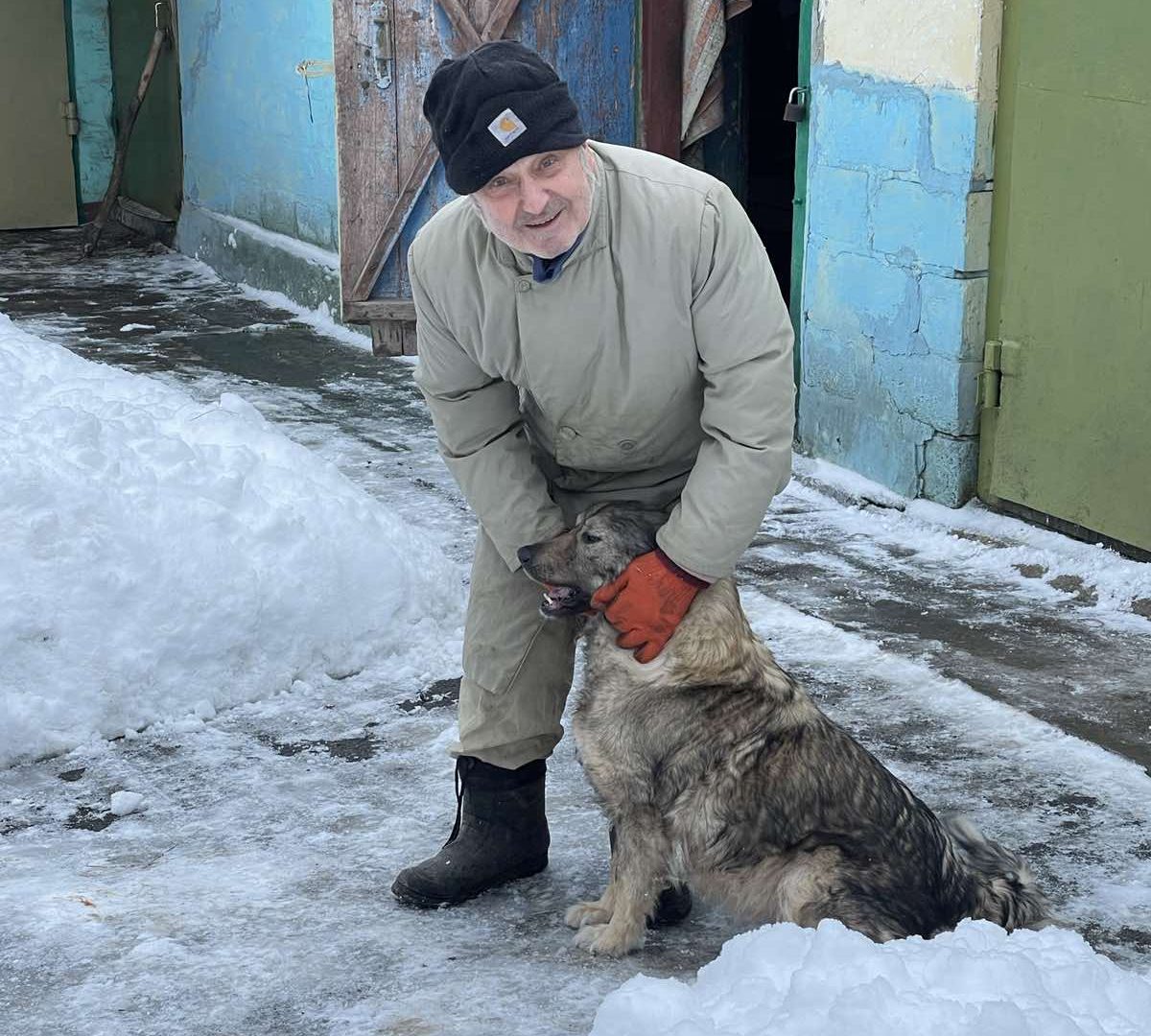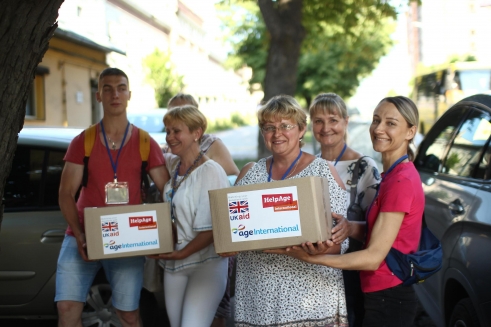In my native Minkivka in eastern Ukraine, the war started in 2014. The villages you read about in the news, the smoking skylines you see on your TV – they were my neighbourhood. A jarring cacophony of shelling was always nearby. If my sister hadn’t called me on that fateful morning two years ago, I might not have realised that the full-scale invasion had started. Not at first anyway.
How would I describe life close to the frontlines in this war?
I would say it’s the smell of smoke. It’s the dampness of the basement that seeps into your bones. It’s the haphazard meals and hushed conversations by the open fire.
But broadly speaking, it’s uncertainty. It’s that heavy feeling of not knowing what will happen within the next minute. It grew with every explosion until all I could feel was present. No past, no future, just that one breath I would draw after hearing a bang. It meant I was alive, at least until the next hit.
These moments between life and death also brought a strange sort of clarity to all of us in the village. We realised that the only way to survive was by helping each other: Those who had winter preserves generously shared their provisions, while anyone who chanced upon free food distributions would grab an extra loaf for a neighbour. Yet tragically, there came a point when this was not enough.
The war expanded, threatening to swallow us whole and spit out rubble.
Electricity was first to go out. When the gas followed, the whole village plunged into sub-zero temperatures. The bomb shelters were even colder. I would sit there in the dim candlelight for hours on end, my three dogs whining woefully, two wide-eyed cats clinging to me in terror.
During the short breaks of silence, we would emerge from hiding to check what had been destroyed. Those days between the basement and our makeshift kitchen in the yard were a nightmare but they don’t come close to the day when I had to leave it all behind.
It was 14 March 2022.
Air strikes had become more frequent. Mortar fire, relentless and heavy. It was almost impossible to leave the shelter. My daughter and her family had long found safety in Germany. I had been reluctant to leave – I had my pets to take care of. In hindsight, I realise that the war had made us numb to danger. We had got used to all the tragedies around us, to lives lost and homes destroyed. That’s how I now explain the late evacuations.
But I remember that day vividly. I came out of the basement after yet another round of heavy bombardment. The damage was unlike anything I had seen before: The entire garden was covered in craters. The old walnut tree looked like it had been cut down with an axe. The fence around my garden was peppered with shrapnel. The metal door to the shelter that had saved my life had seen better days. I called my daughter and told her I was ready to leave.
I put whatever food I had – honey, pickles, canned meat – on the porch for anyone in need, before boarding a bus on that chilly morning of 14 March.
I now live in Pavlohrad – 200 kilometres from my village. Not a day passes by that I don’t think about my home. I heard some 20 people remain there. Many only left after their houses were hit or they were injured. Some of them, such as my cousin Tetiana, barely made it out alive. She and her husband Anatolii lived in a neighbouring village. Just as they were about to leave, a shell hit their garden, heavily wounding Tetiana. Anatolii brought her to military doctors who then arranged her transportation to safety. After dozens of surgeries, she still has a long road to recovery. Not everyone has been so lucky.
Minkivka is in my thoughts again – lives lost, people changed. I used to teach physics and mathematics at a local school when I was young. Later, I worked as a director of our orphanage for over 20 years. I enjoyed working with children, raising new generations. It was the teacher in me that wrote passages from my favourite books on the gates of my property. One of them reads: “Your home is your truth and freedom.” I thought my neighbours or soldiers would find it encouraging.
“Don’t forget your way back home,” – says another passage. I genuinely believe that I will return. As soon as this war is over, I will go back. I know everything there has been destroyed. But we’re hard-working people. We will rebuild. Our towns, our villages, our lives.


